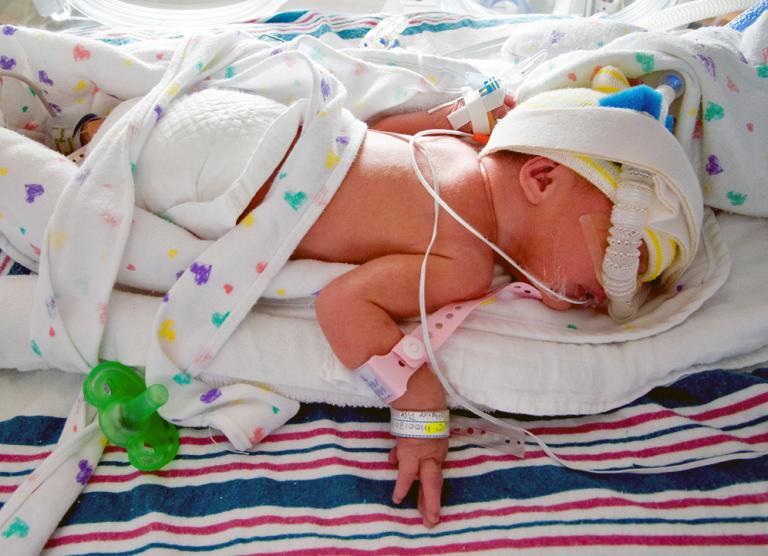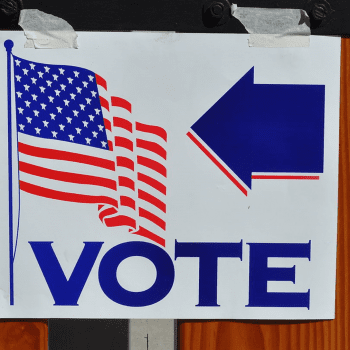
Yes, protecting the life of unborn children is important. But Trump can’t produce a change in American law with respect to abortion – that’s happening at the state level, in the form of increasing restrictions in Red states and elimination of any restrictions in Blue states — including a number of states which have or are moving towards wholly eliminating any limitations or (as in Illinois) even mandating that insurance cover the procedure in the same manner as any other. Trump can’t stop them, due to federalism and separation-of-powers issues. And even to the extent that he could, Trump limits the basic competence to do so.
And in the meantime, Trump fails other metrics in terms of Catholic social justice teaching. A talk by Bishop Robert McElroy reprinted at the National Catholic Reporter lists the usual suspects: immigration, anti-racism, the fight against poverty, etc., but also highlights what he deems to be an issue of urgency comparable to abortion, the fight against climate change, because “the survival of the planet, which is the prerequisite for all human life, is at risk,” or, expressed another way, “the death toll from abortion is more immediate, but the long-term death toll from unchecked climate change is larger and threatens the very future of humanity.”
Now, I’ll admit that I’m not persuaded — the notion that climate change “threatens the very future of humanity” far overstates the case, and it seems a bit disingenuous to use this overstated prediction to label environmental activism a “life issue” on par with opposing abortion.
And it’s a different case than “pro-life but . . .” folks usually make, which is that the claim that the Democrats’ platform of free healthcare and free daycare will result in fewer abortions even absent changes in legislation.
But nonetheless: of the Democrats running for election, with the exception of Tulsi Gabbard, each and every one of them professes the same Democratic orthodoxy: abortion without any restrictions whatsoever, and promises of inclusion in abortion in their single-payer healthcare plans.
In fact, back in October, when Gabbard was still being included in the debates, she was the only one to venture to make a statement other than absolutist abortion support:
I do, however, think that there should be some restrictions in place. . . . I support codifying Roe v. Wade — while making sure that, during the third trimester, abortion is not an option unless the life or severe health consequences of a woman are at risk.
None of the other candidates ventured to even suggest that any limits might be acceptable. None.
In fact, as Alexandra DeSanctis wrote in a Washington Post column shortly after that debate,
Evidence of just how taboo it has become to use the phrase “safe, legal and rare” came in the most recent presidential primary debate, when Rep. Tulsi Gabbard (Hawaii) uttered the fateful words, giving a nod to Hillary Clinton as she did so: “When she said abortion should be safe, legal and rare,” Gabbard said, “I think she’s correct.” The candidate favors abortion rights early in pregnancy and would codify the Supreme Court’s 1973 ruling in Roe v. Wade, but she’d prohibit abortion during the last three months of pregnancy “unless the life or severe health consequences of a woman are at risk.”
Left-leaning critics quickly descended. The Ohio affiliate of NARAL Pro-Choice America tweeted: “This is a position — making abortion ‘rare’ — not supported by pro-choice advocates.” A headline in Vice said Gabbard was “stuck in the ‘90s,” and the article’s author, Marie Solis, argued that the candidate had revived a “decades-old talking point that pro-choice supporters say only further stigmatizes abortion at a critical moment.” She quoted Amelia Bonow, a co-founder of the pro-abortion-rights group Shout Your Abortion, who said, “I cannot think of a less compelling way to advocate for something than saying that it should be rare. And anyone who uses that phrase is operating from the assumption that abortion is a bad thing.”
And it’s not just the Democrats who have claimed the “progressive” lane who follow this absolutism. In a recent interview, Pete Buttigieg staked out his dividing line: life begins with birth. He also parroted the various disproven claims that no abortions happen later in pregnancy other than due to serious medical crises (the link also contains some of the evidence to the contrary). Back in the summer, Biden was cowed into the new party orthodoxy by staffers, backtracking on his prior support of the Hyde Amendment (which prohibits federal funding of abortion); he now explicitly promises that his “public option” healthcare program will include abortion and pledges to “codify Roe v. Wade” (and, incidentally, such legislation includes the guarantee that women will be able to get abortions without interference up to viability, and afterwards, so long as her health is deemed at risk — and with no definition of “health” the default would be the Doe v. Bolton definition of “any reason at all”; see Wikipedia or the 2007 legislation itself).
What’s more, in Illinois, back in 2017, Republican Gov. Bruce Rauner, who had not tried to hide his past support of Planned Parenthood and general pro-choiceness but campaigned and won Republican support with a promise that he had no agenda there but only economic prosperity, signed a bill implementing Medicaid funding for abortion as well as including its coverage in state health insurance plans — and that despite assurances to the contrary.
Then, a year ago, shortly after taking office, Democratic Gov. JB Pritzker signed even more extreme legislation, which erased virtually all restrictions. In its most extreme original form, even the most nominal prior restrictions on the abortion were lifted, up until birth itself; the requirement that only doctors perform abortions was replaced with a stipulation that any qualified “health care professional” was permitted to do so; and insurance companies were required to cover abortion with no copay or cost-share — in the final version, the usual language about limiting post-viability abortions to cases where it “is necessary to protect the life or health of the patient” was retained (though, again, there is no actual enforcement of this provision in Illinois) and the insurance coverage requirement was modified to require coverage under the same terms and conditions as any other procedure.
The new “don’t say rare” Democratic platform has been underway for some time — one of my early blog posts, from 2014, cites the National Abortion Federation as insisting that
Opponents of abortion often portray abortion as a negative problem that society should try to eliminate. While we work to reduce the number of unplanned pregnancies, abortion is a valid and acceptable reproductive choice.
And I recall some time ago for the first time coming across the formulation that “abortion is a normal part of life because women will simply inevitably become unintentionally pregnant at some point during their reproductive years” (though I certainly can’t unearth that article now).
All of which means this: I simply cannot vote for a candidate with these views. Nope, no way, no how. I cannot be convinced that it’s OK for the Democrats to believe that abortion is a positive moral choice, because their opponents are just as bad, or because, weighing the totality of their platform, one might believe there could be fewer abortions as poor women are less impoverished or less often unintentionally pregnant, or because they do more to help immigrants or to reduce the risks of people dying from climate change-exacerbated natural disasters in the future. This extreme support for abortion is so abhorrent I can’t set it aside for some sort of holistic assessment of the candidates. Fundamentally, when I hear (or read) the Democrats’ extremist abortion position, it impacts me viscerally in a way that nothing else does.
Which means the follow-up question is: is it better to vote third-party, or stay home, or to vote for Trump? In 2016, I would have said it doesn’t matter (and I voted for Evan McMullin, by the way), because Illinois’ electoral votes are solidly Democrat. But it has proven to matter, given how much people yammer on about Clinton’s share of the popular vote without being able to assess how many people stayed home (or didn’t vote for the top of the ticket) because they weren’t in swing states. And there might be a certain feeling of moral purity in not voting for Trump, either, but I’m not sure that’s sensible, either.
So happy Saturday, all — and now it’s time to make my shopping list!











